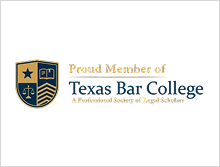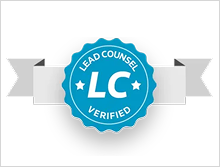Justin Wilson
Senior Attorney
We Offer Complimentary Consultations
If you are facing DWI, assault, sex crime, or other criminal charges, get in touch with My Dallas Criminal Lawyer to learn about your legal options.
My Dallas Criminal Lawyer » Dallas Juvenile Crimes Defense Attorneys
When a child or teenager is accused of a crime, the experience is often terrifying for both the minor and their family. Even a seemingly trivial charge can lead to serious consequences, including detention, a criminal record, school discipline, and long-term damage to your child’s future. If your child is facing juvenile criminal charges in Dallas or the surrounding areas, acting quickly to secure legal representation can minimize the damage.
At My Dallas Criminal Lawyer, we understand that kids make mistakes. We also know that one mistake shouldn’t define the rest of their lives. Our Dallas juvenile defense legal team guides families through the juvenile justice system while building an aggressive defense. Whether your child has been charged with underage drinking, drug possession, or another juvenile offense, we’ll work to protect their rights throughout the entire legal process.
The juvenile justice system is designed to rehabilitate rather than punish, but without the proper legal representation, a child can still face harsh penalties. My Dallas Criminal Lawyer works to minimize the impact of a charge whenever possible. Our firm pursues alternatives like diversion programs, deferred prosecution, and record sealing, which can protect your child from lifelong consequences.
If your child faces juvenile criminal charges in Dallas County, skilled legal representation can make a significant difference. Call 214-764-5535 to speak with a Dallas juvenile crimes defense attorney.
AWARDS AND ACHIEVEMENTS








Even though juvenile court is supposed to focus on rehabilitation, minors can still face life-altering consequences. Your child may be subject to confinement, probation, loss of driving privileges, and records that affect school scholarships and employment. Working with a skilled juvenile defense attorney can mean the difference between a second chance and a lifetime of consequences.
Juvenile courts operate under a different set of rules and goals than adult criminal courts. Judges often have discretion in sentencing. Your child’s case outcome can vary greatly depending on how the case is handled. A defense attorney who understands the juvenile justice system can:
Texas juvenile proceedings are intended to be rehabilitative rather than punitive. While most people are familiar with the adult criminal court process, juvenile court looks significantly different:
When your child is facing criminal charges, you need more than a lawyer – you need an advocate who understands how high the stakes are for your family. My Dallas Criminal Lawyer takes a compassionate, strategic approach to juvenile defense. We offer fierce advocacy and balanced guidance at every stage of the juvenile justice process.
Our goal is to protect your child’s best interests. We take the time to help you understand the system and explore every available path to rehabilitation and record protection. My Dallas Criminal Lawyer offers:
My Dallas Criminal Lawyer is a dedicated legal team committed to helping your family move forward – contact us today to find out how we can help.
My Dallas Criminal Lawyer defends a variety of juvenile crimes, including:
Under Texas law, it’s illegal for a person under 21 to possess an alcoholic beverage. A first offense is a Class C misdemeanor, which can result in a fine of up to $500, mandatory alcohol awareness classes, community service, and a driver’s license suspension. We advocate for diversion or deferred disposition to keep your child’s record clean.
Any minor in Texas who consumes alcohol may be charged – even if they didn’t purchase or possess it. This offense is also a Class C misdemeanor and may carry the same penalties as MIP. We often work to resolve these charges through educational programs that avoid formal adjudication.
Texas’ Health & Safety Code makes it illegal for minors under 21 to possess, purchase, or consume tobacco or e-cigarette products. Penalties typically include fines and mandatory tobacco awareness classes, but the long-term consequences often include school disciplinary action. We help families avoid formal court involvement when possible.
Possession of drugs like marijuana, prescription pills without a prescription, or other controlled substances is a much more serious offense, even for juveniles. Depending on the substance and amount, your child could face felony charges under the Texas Controlled Substances Act. We work quickly to challenge evidence, push for treatment-based alternatives, and seek outcomes that avoid long-term consequences. If you’re unsure whether My Dallas Criminal Lawyer can defend your child’s charges, call us today for more information.
Here are the answers to some of our most frequently asked questions. Don't see your question here? Contact us today to speak with an experienced Dallas criminal defense attorney.
Juvenile courts in Texas handle cases involving minors up to age 17. Unlike adult court, the juvenile system emphasizes rehabilitation over punishment.
Not necessarily. Many juvenile records can be sealed, especially those for first-time, non-violent offenses. Sealing makes the record invisible to most employers, schools, and landlords. Our goal is to minimize long-term consequences and preserve the juvenile’s eligibility for record sealing.
Yes, depending on the charge. In very serious cases, such as those involving violent felonies or repeat offenses, a juvenile court may waive jurisdiction and transfer the case to adult court. My Dallas Criminal Lawyer fights aggressively to keep cases in juvenile court.
Yes. Even seemingly minor charges – like MIP or possession of vape products – can affect your child’s future if not handled correctly. An experienced juvenile defense lawyer may be able to resolve these cases without a formal adjudication.
Generally, yes. Parental involvement is usually permitted, and in some cases, it may be required. Judges like to see that a child has a stable support system. Your presence can make a meaningful difference in how the court handles the case.
Find Us Near You. Visit One of Our Offices.
To ensure we’re available to meet with you and provide the attention your case deserves, all in-person appointments must be scheduled in advance. We do not accept walk-ins, as our team may be in court or out of the office. Please contact us to schedule a time before visiting.
| Our team is available by phone 24/7 | Office Hours |
|---|---|
| Monday | 8AM – 5PM |
| Tuesday | 8AM – 5PM |
| Wednesday | 8AM – 5PM |
| Thursday | 8AM – 5PM |
| Friday | 8AM – 5PM |
| Saturday | Closed |
| Sunday | Closed |
| Our team is available by phone 24/7 | Office Hours |
|---|---|
| Monday | 8AM – 5PM |
| Tuesday | 8AM – 5PM |
| Wednesday | 8AM – 5PM |
| Thursday | 8AM – 5PM |
| Friday | 8AM – 5PM |
| Saturday | Closed |
| Sunday | Closed |